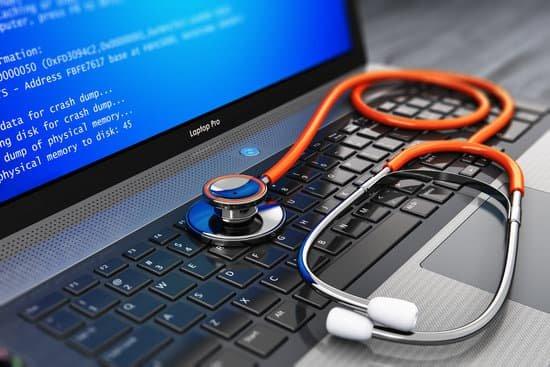New modules and functionality will be added to Michigan Medicine’s electronic medical record over the next six years.

Michigan Medicine’s electronic health record, MiChart, initially launched in 2012. The technology, built on the Epic EHR platform, is the primary application for clinical care that supports research, integration and education needs.
Over the years, Health Information Technology & Services (HITS) has partnered with clinicians, researchers and administrators to identify and implement new functionality to best serve the complex needs of the Michigan Medicine community.
The MiChart Stage 5 (MC5) program kicked off in July 2021 with a focus on improving the quality, safety and efficiency of care for patients and their families. This three-phase, six-year program will adopt 19 new Epic modules.
Phase 1, which is set to finish by the end of fiscal year 2023, will introduce eight new modules:
- Anesthesia
- Bedside
- Behavioral Health
- Cupid (for Adult Echo and Stress)
- Dialysis
- Financial Assistance
- Genomics
- Rover for Radiology
The implementation of these new MiChart modules will not only help centralize the core IT at Michigan Medicine, but will also enhance the quality of data, ensure patient safety and establish reliable systems, workflows and processes.
“Taking on [MiChart Stage 5] will allow our organization to take a giant leap forward to meet our goal of a truly integrated EHR,” said Carleen Penoza, chief nursing information officer and adjunct clinical instructor.
“Our previous staged implementations of MiChart implemented several Epic modules individually to support clinical and operational needs, including Rehab and Care Management,” Penoza said. “Integrated workflows reduce the redundancy of documentation and improve efficiency. This in turn improves patient safety and patient satisfaction.”
Kristin Toulouse, MiChart release manager, said there is plenty of enthusiasm and anticipation for this large rollout: “Everyone involved in the Stage 5 projects so far comes to the table willing to put in the work and are great at working across teams.”
MC5 is unique from previous MiChart staged efforts for multiple reasons: not only does this program extend six years and employ rolling go-lives, but it is also the first MiChart stage that Michigan Medicine is handling entirely on its own without contracting assistance from outside vendors.
The work in Stage 5 is very fast-paced and “not without stress” according to Toulouse, but it is also fulfilling.
“It is neat to be a part of something so impactful. After so much time, planning and scoping, to start seeing the projects going live is exciting. We are confident all the different projects will bring value.”
Rover for Radiology: X-ray workflows are more efficient and accurate
The first MC5 go-live occurred in October 2021, and incorporated Epic’s mobile application, Rover, into the radiology team’s workflows.
Prior to going mobile, radiology conducted portable X-ray exams using paper control sheets. The control sheet workflow consisted of techs preparing an abundance of studies before they began their exams, and this method posed several issues: technologists did not have easy access to MiChart while going room-to-room; misleading timestamps for patient exams were recorded into the system; technologists had to sort through an abundance of patient records for each exam which left a greater risk of user error.
Using Rover, the Radiant team eliminated the use of paper control sheets, improved the accuracy of patient records and reduced the likelihood of user error. Since Rover’s go-live, the radiology group has given extremely positive feedback. Rover for Radiology introduced a multitude of efficiencies to their process.
“It was an intuitive process for the portable X-ray techs,” said TJ Grzeskowiak, HITS admin manager. “They transitioned seamlessly to the new workflow.”
Grzeskowiak worked as the lead analyst for the MiChart Radiant team during the Rover project.
Pending further developments from Epic, mobile applications pose the possibility of further improving workflows in healthcare.
The Financial Assistance Project: Applying for financial assistance digitally allows patients to receive real-time updates, speeds up application process
MiChart’s new Financial Assistance module, which went live in April 2022, will help to increase patient security and satisfaction. Financial Assistance provides operations with a secure central database for patient records that improves the efficiency of workflows and improved patient access is expected to reduce call volumes, manual work and patient wait time.
Previously, when patients applied for financial assistance, they would often send sensitive documents in the mail for review. The process could take weeks to complete and contributed to an inefficient workflow.
With Epic’s Financial Assistance module, patients can upload documents to their MyUofMHealth patient portal, receive real-time updates on their application status, and see responses within a matter of days.
“It’s all about having the best patient experience possible,” said Amber Athan, operations project manager. “Around 67 percent of patients at Michigan Medicine are using the patient portal, so integrating financial assistance is crucial to providing the best patient care possible.”
Another crucial part of improving workflows is ensuring the design of new modules matches the needs of Michigan Medicine staff.
“We have exceptional collaboration between operations and IT,” said Michelle Kostishak, business systems analyst. We have a great group of people, and we work together well; we approach things as a team.”
